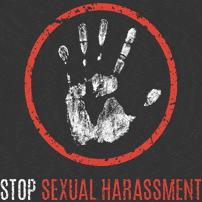
While there is no question that sexual harassment is pervasive in many workplaces, it is also underreported. Only one in four women experiencing sexual harassment on the job report the issue to their employer. The following are legal barriers that may prevent 75 percent of sexually harassed women from reporting it, all defined by the courts over the decades.
Title VII of the Civil Rights Act of 1964
One barrier concerns Title VII of the Civil Rights Act of 1964. While this 54-year-old legislation does address sexual harassment, such behavior is only considered illegal when it is severe or pervasive. Over the years, courts have decided that all sorts of outrageous behavior does not meet the severe or pervasive standard. Courts have found such despicable actions ordinary and not worthy of consideration. This prevents victims from reporting the behavior that they are unsure meets the standard level of sexual harassment.
Employer Liability
In 1998, the Supreme Court enabled employers to avoid liability for sexual harassment if they exercised reasonable care to prevent and correct sexually harassing behavior. At the same time, if the employee did not take advantage of the corrective opportunities, the employer could not be held liable. Many companies have sexual harassment policies that meet the minimum standards. These companies may not have anti-sexual harassment training policies in place and those targeted by harassers may not know the process for filing a formal complaint.
Retaliation
Employers are not supposed to retaliate against employees that make harassment claims. Those making a complaint may find themselves terminated or demoted. Even though there are laws that are supposed to protect these workers, courts have decided that only those suffering illegal harassment are protected from employer retaliation.
Proposed Changes
The MeToo movement is changing workplace culture, and it may cause Congress to act. A proposed bipartisan bill, if passed, will allow workers alleging sexual harassment to have their cases heard in open court rather than via arbitration. That means employers cannot keep sexual harassment cases quiet anymore, and their employees would know about the situation. Amending Title VII to clarify or revise the meaning of severe and pervasive when it comes to sexual harassment would also be a beneficial change.
Philadelphia Sexual Harassment Lawyers at The Gold Law Firm P.C. Advocate for Those Suffering from Sexual Harassment in the Workplace
If you or a loved one has experienced sexual harassment in the workplace, you need the services of the experienced Philadelphia harassment lawyers at The Gold Law Firm P.C. To schedule your free initial consultation today, call us at 215-569-1999 or contact us online. We are in Philadelphia and we proudly serve clients from the surrounding areas, including Bucks County, Chester County, Delaware County, Montgomery County, and throughout New Jersey.





































